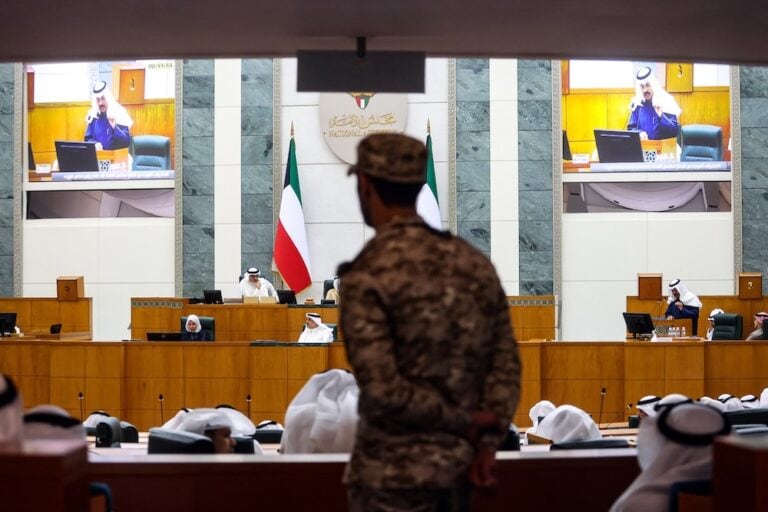(ANHRI/IFEX) – The Arabic Network for Human Rights Information said on 12 July 2008 that the Kuwaiti government’s issuing of a resolution to prevent official staff from writing in newspapers is a harsh blow to press freedom and freedom of expression, taking Kuwait back decades and violating several constitutional articles that ensure the freedoms of […]
(ANHRI/IFEX) – The Arabic Network for Human Rights Information said on 12 July 2008 that the Kuwaiti government’s issuing of a resolution to prevent official staff from writing in newspapers is a harsh blow to press freedom and freedom of expression, taking Kuwait back decades and violating several constitutional articles that ensure the freedoms of opinion and expression.
“Al Qabas” newspaper revealed a governmental document, which has been under preparation since February 2008, that prevents government staff from working in journalism. It imposes penalties that include dismissal from work for any employee who writes in newspapers.
The Kuwaiti government provided a flimsy and unacceptable reason for taking this decision, which was the need to “preserve state secrets.”
“They want to prevent us from writing and addressing the issues of imbalance and corruption, which is not acceptable in a constitutional state,” S. Ahmed, a Kuwaiti journalist, told ANHRI.
It is worth mentioning that behind the Kuwaiti press are many brave journalists, who have played a significant role in ending the noticeable decline of freedom of opinion and expression in Kuwait. Most of them are official staff. Preventing them from writing amounts to direct support for press freedom’s enemies and those who wish to limit the Kuwaiti citizen’s right to knowledge, especially as no democratic state imposes such decrees.
“In such a state like Kuwait with a low population, the government should encourage its people to express their opinions. Kuwaiti journalists have an outstanding status in the Arab world. It is shameful that the government is reversing the progress that has been achieved and returning to repression,” said Gamal Eid, executive director of ANHRI.


